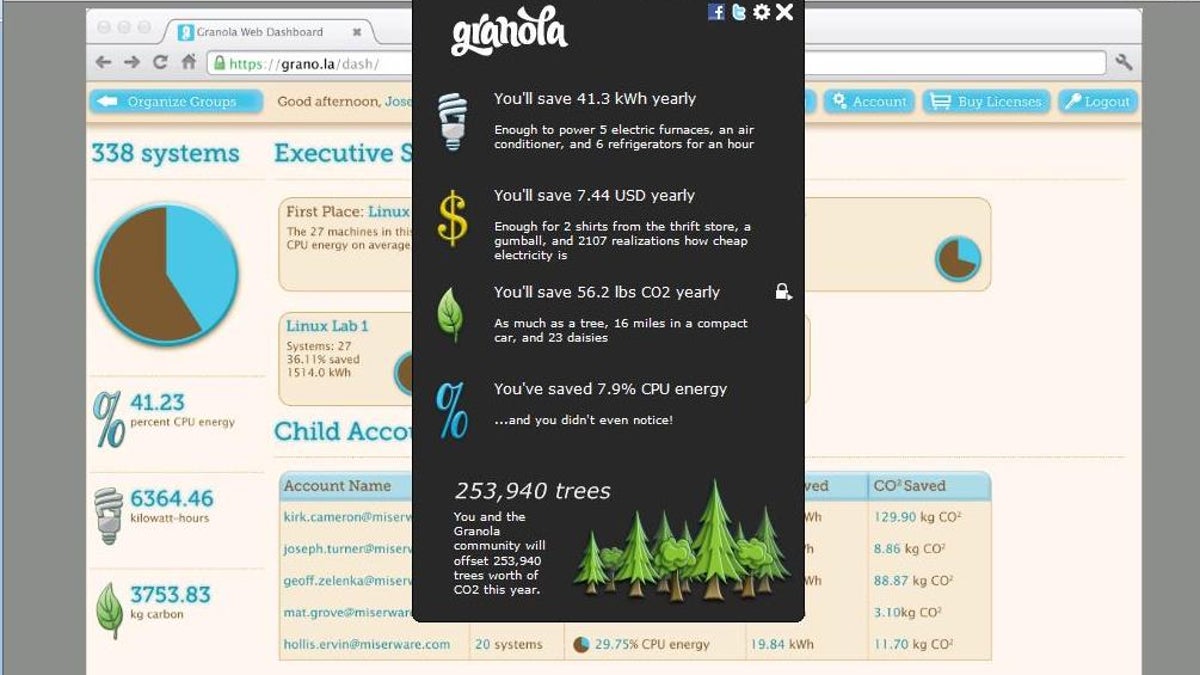Granola PC energy miser plugs in at CES 2012
Working in the background, Granola software dials down power usage of CPU and other components by about 30 percent without knocking down performance.

Granola software does the equivalent of dimming the lights in your PC to save energy.
MiserWare, which developed Granola, will be one of the roughly 80 startup exhibitors at the Consumer Electronics Show in January. After operating quietly since its founding in 2007, the Virginia Tech spin-out is expected to show off its upcoming energy-saving products.
MiserWare's software works in the background on PCs and servers to ratchet down power without affecting the performance, according to CEO and co-founder Kirk Cameron. There's a free consumer version for Windows and Linux that cuts energy by about 35 percent, along with a paid version for business PCs and data centers.
"If you suddenly switch from using Word to playing World of Warcraft, it knows that right away and it switches to getting maximum performance," he explained.
Granola is different from traditional power management software, which just turns off the monitor or hard drive to save energy, because it can turn power down incrementally on the CPU and other components with a variable power state, he said.
I've been running Granola on my laptop for the last few hours and the software, in autopilot mode, has consistently saved at least 5 percent on my CPU power without any noticeable change in performance. When I launched the most demanding application I use--a video-editing package--the energy-savings rate slipped down a few tenths of a percent.
The technology behind Granola was originally developed for supercomputers which typically are optimized for performance and use huge amounts of power. Cameron and co-founder Joseph Turner licensed the energy measurement and management technology from Virginia Tech and adapted it to work on PCs and servers.
Compute performance isn't compromised because people can set thresholds. For example, a data center operator could configure it so that server processors can run 5 percent to 10 percent slower in the middle of the night when traffic is slower.
Another neat feature is that people can track how much energy they save over time and how that translates to reduced carbon emissions.
The original free version, which has been downloaded about 300,000 times since it was released on Earth Day 2010, was designed for PCs. But the company is now working on a laptop-specific edition and better reporting tools to view energy savings, Cameron said.
Actual dollar savings varies by user but a desktop PC user might save $20 a year, Cameron said. The biggest benefit for laptop users, though, is extending battery life. "Getting 30 minutes more of battery life is probably more valuable than the dollar savings," he said.
The company has raised about $1 million in funding, including an investment from In-Q-Tel, the investment arm of the U.S. intelligence agencies.

